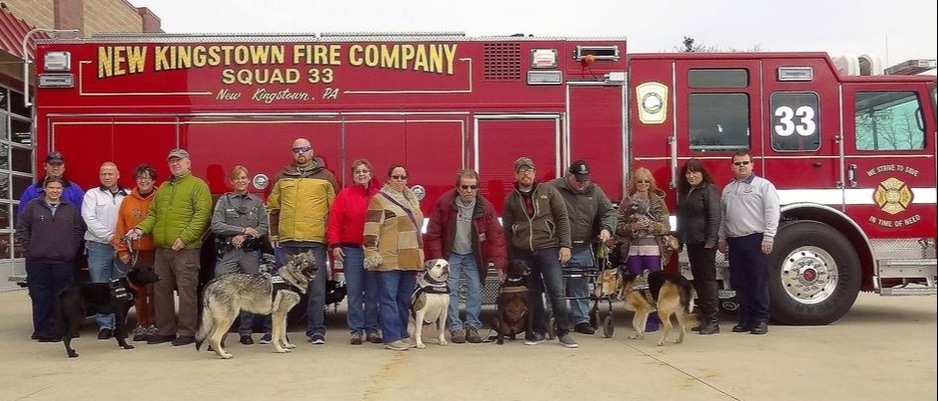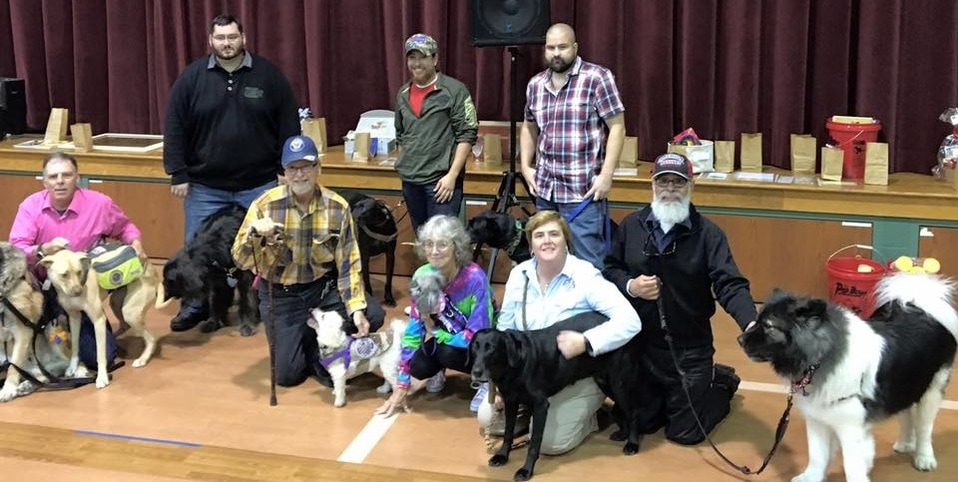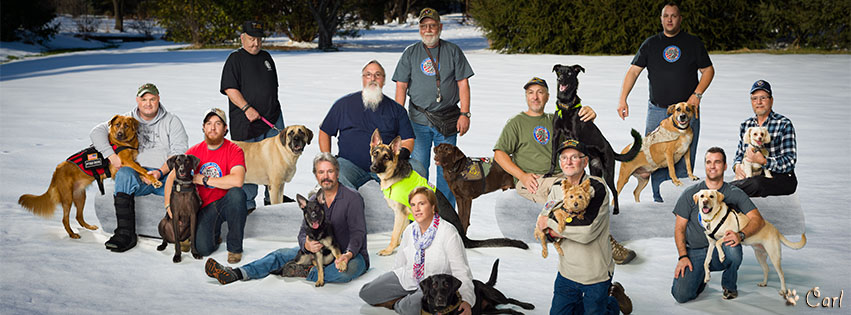We have veterans who have served in conflicts ranging from Vietnam to present day Iraq and Afghanistan.
GUIDELINES FOR AN ACCEPTABLE SERVICE DOG CANDIDATE
Our goal is to help you train your own service dog. We expect the dog to perform at such a level that you have a dog consistently assisting you day in and day out. You should be confident of your dog’s ability to serve you. We expect your dog, once trained, to improve the quality of your life.
Your dog should also be a wonderful ambassador for service dogs. Both you and your dog need to be aware of the fact that there are people who are allergic to dogs, fear dogs, have a cultural opinion that dogs are “dirty,” or have no knowledge of what a service dog provides to its handler. It will help you and your dog if you are aware of these facts and do your best to put forth service dogs in a positive light.
Keeping these important issues and facts in mind, we have established these guidelines to help with the dog selection process.
The dog selected for this purpose should not be:
Your dog should also be a wonderful ambassador for service dogs. Both you and your dog need to be aware of the fact that there are people who are allergic to dogs, fear dogs, have a cultural opinion that dogs are “dirty,” or have no knowledge of what a service dog provides to its handler. It will help you and your dog if you are aware of these facts and do your best to put forth service dogs in a positive light.
Keeping these important issues and facts in mind, we have established these guidelines to help with the dog selection process.
The dog selected for this purpose should not be:
- A dog who was not screened and approved by the training staff. It doesn’t matter what the shelter, breeder, previous owner, or rescue told you. We must screen the dog prior to your acceptance into the program. You must also accept the fact that a dog may have been allowed to join the program, but later may be asked to leave. We cannot prescreen a dog for all situations that it may encounter. As training continues, situations may develop which prevents the dog from being a successful or reliable service dog.
- A breed where there is a preconceived idea from the general population that the breed is dangerous. While we recognize that many breeds with this stigma can be a wonderful pet or service dog based on the way the dog is raised, it can be problematic when dealing with bans on specific breeds, home owner’s insurance, etc.
- A dog in poor physical condition. Public access test criteria does address the dog’s physical appearance. A dog that does not look like it is within a reasonably normal weight, has a physical impairment, and is not properly groomed (clean coat, brushed, etc.), may prevent the dog from passing its public access test.
- A dog you cannot physically control (i.e., physically keep the dog from pulling or dragging you). If you have a limitation that would prevent you from being able to handle the dog through its training, you may need to either find another dog better suited to your limitations, or take additional basic obedience classes on your own time. If your physical limitation is temporary, you may need to leave and then join or rejoin the program at a later date.
- A dog you cannot groom. Certain breeds of dogs require intensive grooming and/or time to groom. For example, if every 2 or 3 months you do not have the time to clip a poodle or the financial means to pay a groomer to do so, you may want to consider a dog who doesn’t need to have its coat clipped. If the dog has long hair and your schedule prevents you from brushing the dog every day, you might want to consider a breed with a short coat. All dogs need to be bathed, brushed, and have their toenails trimmed.
- A dog that does not fit your lifestyle or your training goals. If you are super active and like to run five miles every day, then an inactive dog would not be a suitable match. The dog not only needs to fit your lifestyle, but it needs to be a breed conducive to this type of training. Hard-headed, independent thinkers, and/or naturally protective dogs are not good candidates for this job.
- A dog you don’t like. If you do not like the dog, don’t take the dog just because you want to be in the program. Take the time to find a dog you like. If you don’t like dogs at all or the person you live with doesn’t like dogs – do not join this program! Your feelings will eventually show and this program will not work for you. It is not fair to the dog to bring it into your life only to eventually reject it.


